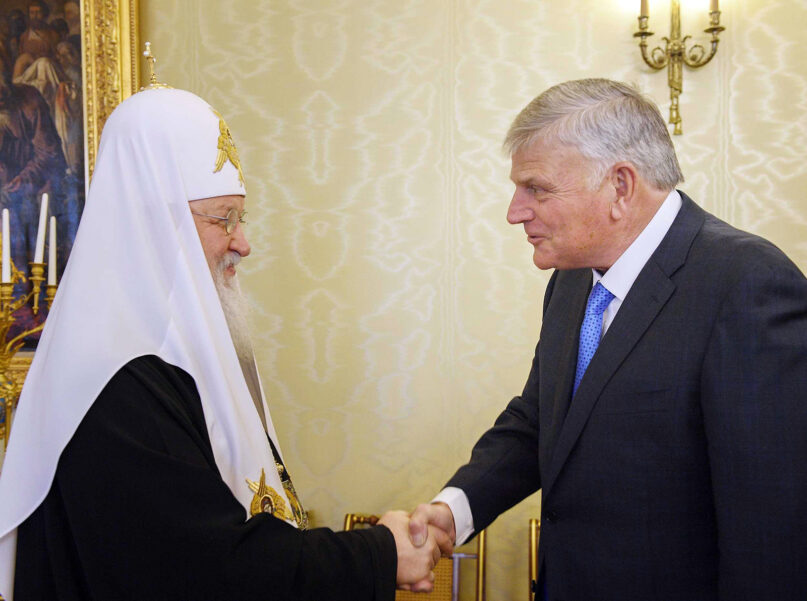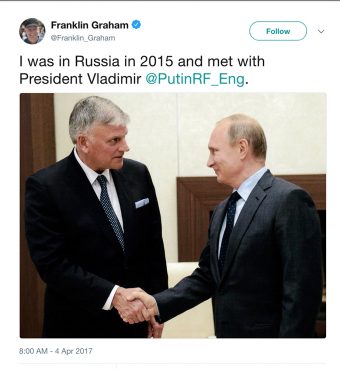When it comes to reproductive rights, Malta remains a conservative bastion in Europe. The pro-choice camp’s assertion of women’s right to abortion is hotly contested by an aggressive pro-life lobby with backing from the state and the church. Raisa Galea explores the contradictions of a debate which is bound to questions of national identity, morality and sovereignty in a post-colonial state grappling with a dual desire for progress and maintaining tradition.
Apart from Vatican City, Malta is the only country in Europe which criminalises abortion under any circumstances. The provisions within the Criminal Code of Malta have practically remained untouched since their enactment in 1854.
Yet, it is a fact that women living in Malta travel abroad to access abortion. As the law recognises induced miscarriage as a criminal offence punishable by up to three and four years of imprisonment – for a pregnant woman and a medical practitioner respectively – there are no official statistics on the number of women seeking the procedure abroad. The Maltese pro-choice coalition Voice For Choice estimates it to be around 300 a year. Although this number is significantly below the European average (183 abortions per 1000 live births, as reported by WHO Europe), even a possibly underestimated figure indicates that women in Malta are no exception and undergo the procedure despite the blanket ban.
Celebrated by pro-life groups and challenged by the pro-choice lobby, the special status of Malta in relation to abortion is acknowledged by both sides of the divide. As was the case with divorce and spring hunting (both highly contested topics which led to referenda), the abortion debate transcends the limits of a practical, if controversial, matter and enters the domain of identity politics and ideology.
Since the ban does not prevent hundreds of abortions yearly from taking place outside of the country, the major goal of lobbying in favour of the current legislation is to stop abortion from happening on Maltese soil. A key argument against the decriminalisation of abortion is to preserve Maltese national identity as rooted in conservative politics, Catholic morality and family values.
Family values and superior national morality
The abortion debate in Malta is characterised by a dualistic narrative. While the pro-choice perspective argues in favour of recognising a woman’s right to bodily autonomy and to ending an unwanted pregnancy, the pro-life camp insists that life begins at conception and equates terminating a pregnancy with murder. The pro-choice campaign is treated with much hostility by various segments of the Maltese population. Activists are verbally assaulted, their arguments dismissed.
Delving into the reasons for such vehement opposition to abortion in Malta, anthropologist Rachael Scicluna suggested that in societies where family ties are strong and conservative views on gender roles prevail, the concept of an embryo is intrinsically linked to the concept of family. Thus, at a subconscious level, abortion could be perceived as a threat to the very foundations of Maltese kin society and, consequently, objecting to its introduction is a way of defending family values and the status quo. While this hypothesis offers an insight into the pro-lifers’ social insecurities, there seems to be another narrative fuelling hostility to abortion: the fear of outsiders’ intentions to dismantle core Maltese values.
When asked to comment on the cases of Maltese women accessing abortion abroad, the pro-life organisation Malta Unborn Child Platform refuted the estimate: “We know, for example, that around 55 women of Maltese nationality undergo abortion in the UK but we do not know how many of those women travel from Malta or actually reside in the UK. There may be also foreign women, residing in Malta, who go for an abortion in the UK.” Thus, the organisation implies that having an abortion is incompatible with being a Maltese woman living in Malta.
[…] upholding Malta’s abortion ban is a way of asserting national moral superiority.
A conspiracy theory involving a sinister foreign plan to force abortions upon the Maltese is circulating in some people’s imaginations and on social media. This is evident in personal attacks hurled at the prominent feminists Andrea Dibben and Lara Dimitrijevic, both of whom are Maltese albeit with foreign-sounding surnames. “Go do Satan’s work in your own country!” and “go back home and kill your babies” are common retorts to their pledges. This conspiracy theory is also propagated by Gift of Life Malta: according to the organisation, having “political allies within and outside of Malta” is part of the pro-choice camp’s strategy.
Asserting that a woman must not be forced to gestate against her will stirs mass outrage among the pro-life camp. Female pro-choice activists are advised to police their own sexuality and assume responsibility for the pregnancy, even if it resulted from rape. One social media commentator responding to an article that reported verbal abuse targeting Maltese pro-choice activists indicated that cases of rape are very rare in Malta and that even in cases of rape which resulted in pregnancy, the woman would be “free to go abroad to kill the unwanted baby”. Although this argument is based on a poorly informed perception of the infrequency of rape in Malta – sexual assault often goes unreported due to a victim-blaming stigma – it nevertheless demonstrates that it is possible to oppose decriminalisation of abortion in Malta while condoning “murder” so long as it happens outside of the country.
Further evidence of the abortion ban being perceived as a part of national Maltese identity in need of protection comes from the church. By stating that “our work in favour of life at all stages underlines our identity as Maltese”, Auxiliary Bishop Joseph Galea Curmi implied that the country’s devotion to the Catholic faith is rivalled by the Vatican alone – the only other state in Europe which criminalises abortion.
President of Malta George Vella also spoke in favour of the current legislation at an event organised by the Malta Unborn Child Platform. His presence at the gathering clearly signalled state support for the anti-choice cause – a national mission that is “on the right side of history”.
Furthermore, the president expressed doubt about the moral authority of the European Court of Justice, where “you’re frowned upon if you do not accept abortion”. Considering that Malta’s political crisis and high-profile corruption remain a subject of international scrutiny, Vella’s statement is indeed politically loaded. Outsiders – immoral “baby-killers” – are in no position to criticise the only remaining bastion of Christian values in Europe. In other words, upholding Malta’s abortion ban is a way of asserting national moral superiority. And it could be the authorities’ effective means of diminishing international criticism, undermining verdicts of the European Court of Human Rights, and, by extension, even brushing off demands for constitutional reforms altogether.
Between “progress” and “tradition”
As a local activist and Men against Violence director Aleksandar Dimitrijevic pointedly observed, official demands to reform laws against abortion by the Council of Europe’s Human Rights Commissioner receive little support from rule of law advocates in Malta. Civil society groups striving to bring Maltese legislation in line with the rest of European liberal democracies, and who are usually so attentive to international assessment, ignore calls for abolishing the abortion ban. What could be the reason for such a selective commitment to human rights as defined by international legal bodies?
Contemporary politics in Malta has been a trade-off between “progress” and “tradition”. For the past few decades, the young independent republic sought to establish itself as a modern European state while, at the same time, remaining under the tight grip of the Catholic church. An ambiguous compromise between embracing progress and preserving traditions has been reached on the basis of two criteria: profit-making and national pride.
“Progress” came in a financially lucrative form: free-market economics, construction boom, luxury megadevelopments, and “blockchain island” fantasies. A prominent hotelier pompously encouraged his compatriots to “always accept progress” – unless, it seems, this progress is unprofitable and undermines the authority of the church, the guardian of conservative traditions. Thus, a progressive stance on reproductive rights barely enjoys a fraction of the state’s enthusiasm for “progressive” elite property developments.
Reproductive rights remain a bone of contention in the rivalry between perceived national uniqueness and questions about EU integration.
Matters of national sovereignty and upholding traditions hold a special political significance in the post-colonial state. Reproductive rights remain a bone of contention in the rivalry between perceived national uniqueness and questions about EU integration. Guarded by the Church as an inherently Christian value, a ban on abortion is thus construed as an essential Maltese tradition. In the context of a post-colonial country, independent from the British Empire for a little longer than half a century, the ban is also a manifestation of national sovereignty and unwillingness to bow down to external power.
What about Malta’s LGBTIQ legislation? Some may argue that by becoming the first country in Europe to ban gay conversion therapy in 2016 – and by legalising same-sex marriage a year later – the Maltese state has declared its commitment to progressive social policy. Seen from a different perspective, however, this was rather a win for national pride. The reform gave even conservative locals a reason to savour international recognition and be proud of Malta leaping ahead of the curve compared to the rest of Europe. “We made history” – the rainbow message projected onto the Office of the Prime Minister rendered Malta a champion of the cause in the European Union. Since 2016, the country has been ranked the most progressive in Europe (and later, in the world) on LGBTIQ rights.
In the case of abortion, it is precisely the blanket ban that makes Malta “special” in the eyes of its citizens, and distinct from other formally secular European states. Defending the country’s role as a citadel of superior morality besieged by “baby-killers” could be a seductively heroic narrative. Also, portraying the abortion ban as an untouchable tradition may function as compensation for the loss of natural and architectural heritage sacrificed on the altar of economic progress.
[…] portraying the abortion ban as an untouchable tradition may function as compensation for the loss of natural and architectural heritage sacrificed on the altar of economic progress.
Institutionalised stigmatisation of women
“Does our president consider his citizens who have had an abortion murderers?” This was the question posed by Voice For Choice in response to the president’s pro-life endorsement. This is certainly one of the most pertinent questions of the debate. Another question: if abortion is murder, why does the punishment for induced miscarriage range from eighteen months to three and four years of imprisonment? Is this not too mild a punishment for murderers?
As noted by Maltese feminist lawyer Desiree Attard in her doctoral thesis, the Criminal Code itself implies that “a woman’s life is more valuable than that of the fetus.” As per Article 242, the punishment for performing an abortion that results in the death of the woman is life imprisonment. This disparity in punishment – four years versus a life sentence – means that, unlike a woman, the law recognises that a fetus is not a person.
If the legislators did not equate abortion with wilful homicide in 1854, what makes this an acceptable argument in 2020? Such contradictions further reveal the deeply ideological basis of the pro-life argument, whose goal is to preserve the conservative status quo by denying women an established human right and exerting control over their bodies.
With the blessing of both the state and society, the “pro-life” camp turns fellow women citizens into outcasts who must suffer in silence.
Apart from being legally incorrect, equating abortion with murder means regarding women who have undergone the procedure as murderers. This is no less than a means of institutional oppression and ostracisation of women. Both the endorsement of the anti-choice perspective by the president and the common perception that links it to Maltese identity and national morality celebrate Malta as a conservative patriarchal state.
Society and the state force Maltese women into shame for accessing a healthcare service available to women in the absolute majority of countries worldwide. Such marginalisation, reinforced stigma and cultivation of guilt are detrimental to women’s psychological and social wellbeing; they cause loss of self-esteem and induce fear of abandonment. With the blessing of both the state and society, the “pro-life” camp turns fellow women citizens into outcasts who must suffer in silence.
This is an edited version of an article first published on Isles of the Left
https://www.greeneuropeanjournal.eu/abortion-debate-in-malta-between-progress-catholic-morality-and-patriarchy/









